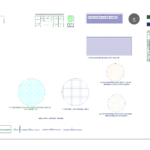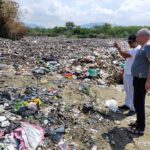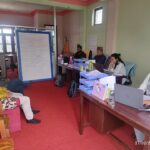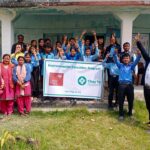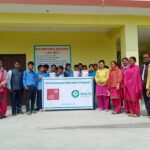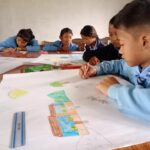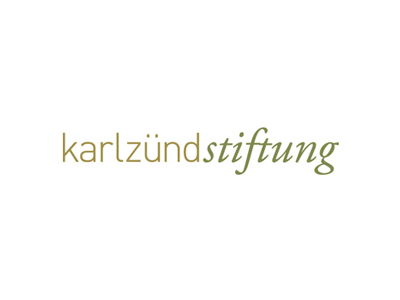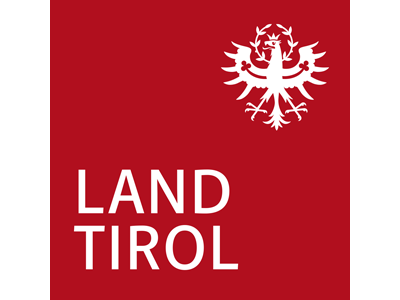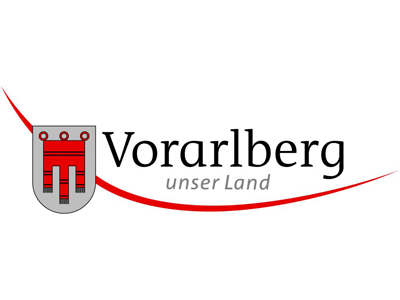Chandrapur, Rautahat
WASTE SEGREGATION & RECYCLING CENTER PHASE I-III
Solid waste management

Place
Chandrapur,
District Rautahat

Who
Implemented by: Chay Ya Nepal,
Chandrapur Municipality

Partners
Chay Ya Tirol,
Chay Ya Austria,
Land Tirol,
Land Vorarlberg,
Karl Zünd Stiftung

When
2023 - 2026

For
initially 500 households (up to 1,500 in Phase II)

Status
Ongoing
Project
Urbanization in Nepal has been increasing rapidly, albeit from a low level, especially in the Terai region, where more than half of Nepal´s population live. With an increasing population and changing consumption patterns, waste production is higher than in the past. This requires a modern waste management system with the implementation of strategies for waste prevention, waste treatment and recycling.
At the moment, the majority of Chandrapur´s non-organic waste is either improperly buried, dumped in open spaces, burnt, or disposed in water bodies. This non-existant or inappropriate waste management thus endangers health (e.g. by illnesses like cholera, diarrhea or typhoid), the environment (due to aggressive and toxic substances) and the climate (eg. through CO2 emissions).
Assessments revealed that more than 50 % of the household waste of Chandrapur is bio-degradable and can thus be transformed into fertilizer, whereas non-biodegradable waste like plastic, textiles, paper, metals or hazardous material has to be separated to gain recyclable fractions. Therefore, citizens are to be encouraged and trained to divide household waste into biodegradable and non-biodegradable waste.
The current project is divided into two phases: In Phase I, a waste management system will be implemented, initially for 500 selected urban households. This serves as a pilot for Phase II, in which the expansion of the Waste Segregation & Recycling Centre (WSRC) and an increase to 1,500 households will take place, including technically advanced solutions for recycling and environmental protection, in line with findings from Phase I. Future phases should follow, and will be planned after Phase I.
Since waste segregation is done manually, 12 waste collectors will be employed from marginalized and disadvantaged groups, to lift them out of their precarious life and work conditions and provide them with a regular income and job security, while also aiming to make their contributions to the common good visible in order to enhance their social status. Additional personnel are needed to collect the waste from households; these will be provided by the Municipality Waste Department, as well as a mechanic. The team will be completed by a Manager of the WSRC (25 jobs in total). All employees receive initial training and ongoing education. In addition, food will be provided on site (the construction of a kitchen is part of Phase I and will receive methane gas from the biogas plant, which will be additionally used for heating water for washing facilities and showers).
Recyclable raw materials (PET, plastic foils, ferrous and non-ferrous metals) are pressed and sold or recycled into new products at the WSRC itself (e.g. bowls, cups, buttons). The target for Phase I is a recycling rate of 15 %. The remaining 85 % of the delivered waste will be properly landfilled, but that number is also to be reduced in the subsequent phases.
The second focus of the project is on raising awareness and promoting waste segregation. As in Europe in the 1980s, the plan is for pupils and students to “import” waste segregation from schools into their homes. A separate school campaign will be launched for this purpose. Besides youth- and ECO-clubs from schools, 25 activists from the 500 households of Phase I will be trained to promote waste segregation and to support their neighborhoods with practicable advice to perform the segregation on a household level.
The local government of Chandrapur Municipality, Rautahat will cover 14 % of the total cost of the project. It will also provide land (20 % of project costs), some existing basic facilities (electricity, water etc.) and labor for the construction. After the completion of the project, the regular operation (salaries, equipment and all follow-up costs) and its financing will all be taken care of by the municipality, although the commercial side of the recycling facilities from the project (sales, marketing etc.) will of course also be taken over by the municipality.
Updates
March 2024
Following discussions with local politicians and land inspections in 2023, there is now an office on site, the necessary contracts have been signed and the first school eco-clubs have been founded. A painting competition was held just in time for World Water Day and the education program was officially launched. The aim is to give pupils their first insights into recycling and waste recovery and raise their environmental awareness.


